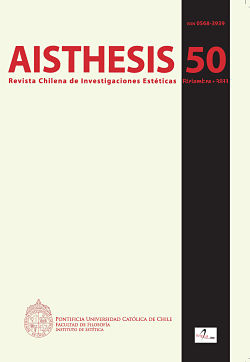The Sublime and the Unforeseen in Miltín 1934, an Avant-garde Novel by Juan Emar
Main Article Content
Abstract
In Miltín 1934 Juan Emar unfolds two conceptions of sublime, considering this concept as a stereotyped fact, an art for bourgeoisie consumption, kept within a mimetic and naturalistic aesthetics. Emar satirizes this type of art as well as the art-critique that was dominant in the country at the time. His avant-garde proposal endorses an aesthetic of the sublime as a denial of the referential effect, which opens to Foucault’s Unforeseen (yet-not-thought). The aesthetic of Miltín 1934 is an attempt of an impossible writing, and an outline for the aesthetics of a fluent unexpected poetic, proposal that Emar will fully develop in his posthumous work, Umbral.
Downloads
Article Details

This work is licensed under a Creative Commons Attribution-NonCommercial-ShareAlike 4.0 International License.
All contents of this electronic edition are distributed under the Creative Commons license of "Attribución-shareAlike 4.0 Internacional" (CC-BY-SA). Any total or partial reproduction of the material must mention its origin.
The rights of academic works published in this publication belong to their authors., who grant to AISTHESIS: Revista Chilena de Investigaciones Estéticas the license for its use. The management of the permits and the authorization of the publication of the images (or of any material) that contains copyright and its consequent rights of reproduction in this publication is the sole responsibility of the authors of the articles
